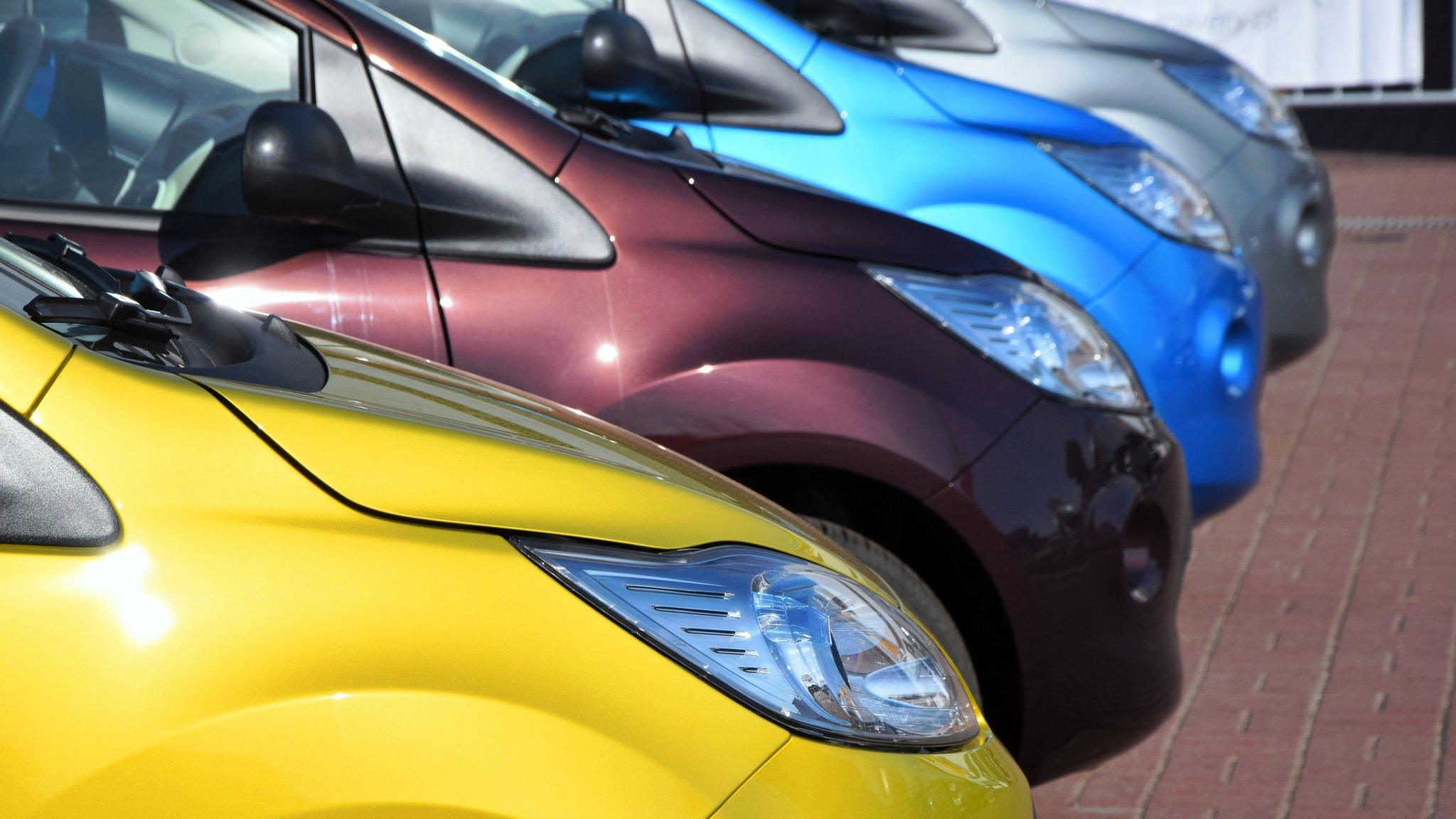Air quality: Diesel scrappage scheme being considered
- Published
- comments
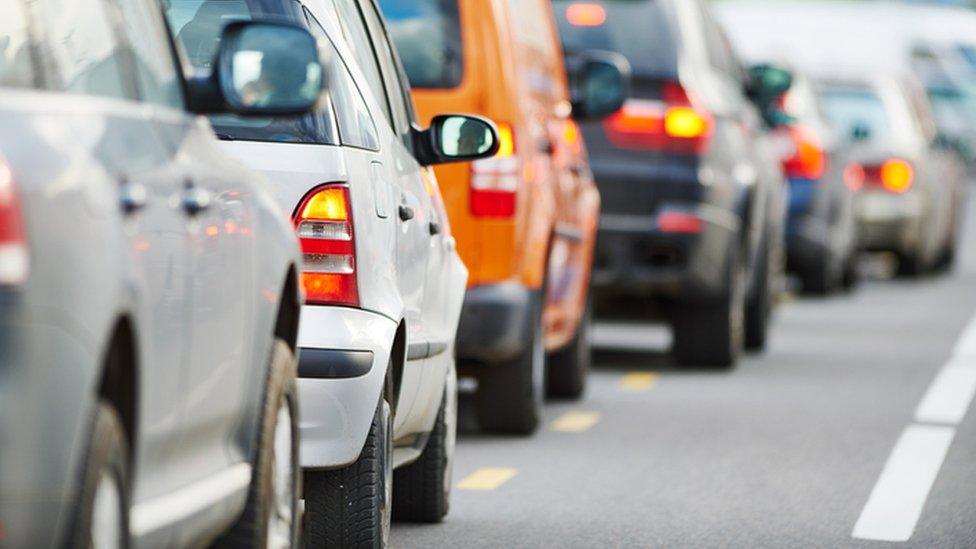
The increase in diesel cars in the UK has caused levels of NO2 to rise rapidly
The government's draft clean air plan has been dismissed as "toothless" and "weak" by critics.
Under the proposals to tackle dirty air, some drivers of older cars could be paid to move to electric vehicles.
The draft plan also considers retrofitting buses, lorries and black cabs as a way of delivering cleaner air.
Clean air zones could be set up in dozens of cities and towns according to the document.
Motor manufacturers have welcomed the plans but environmental campaigners say the proposals are "half-baked."
The consultation has been published after a long legal wrangle with green groups.
According to the Royal College of Physicians, external, air pollution across the UK is linked to around 40,000 premature deaths every year.
The UK has struggled to keep within EU limits on some pollutants, particularly nitrogen dioxide (NO2), which is produced by diesel engines and is linked to a range of respiratory diseases, including asthma. Some 37 of the 43 regions of the UK are in breach of NO2 limits.
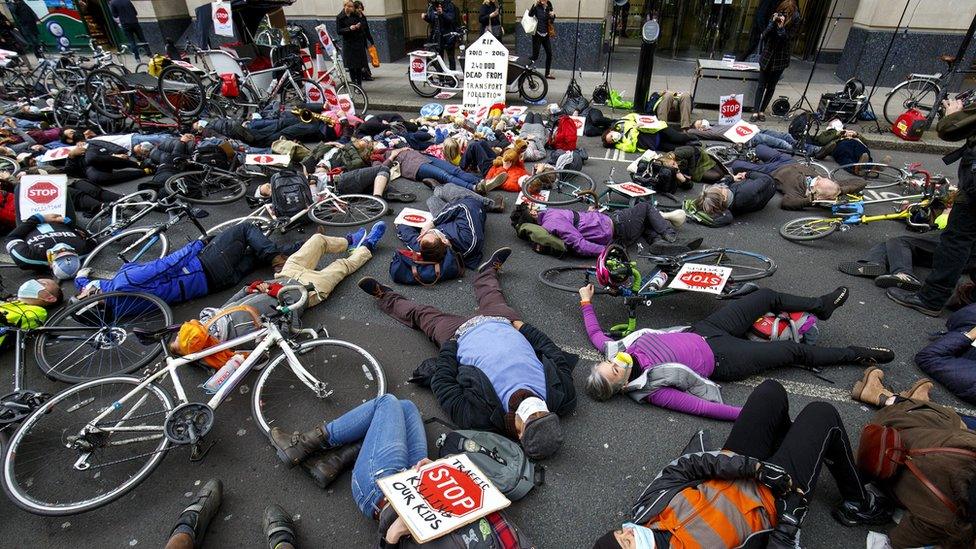
Air pollution protesters have taken to the streets in the UK to demand cleaner air
Exasperated by what they believed was government foot-dragging on the question of cleaner air, environmental lawyers ClientEarth mounted a legal challenge to force faster action.
After several judicial decisions in favour of the legal firm, the government has now finally published its draft response.
Cash to scrap
The series of documents on a clean air strategy released on Friday cover a wide variety of options.
The most radical measure being considered is what's termed a "targeted" car scrappage scheme.
In its technical documents supporting the plan, modellers estimate that such a scheme could take 15,000 diesel and older petrol cars off the road.
"Under this scheme, 15,000 Euro 1-5 diesel cars/Euro 1-3 petrol cars are replaced with electric cars. The grant level that has been assumed for this option is £8,000," the documentation states.
The suggestion is that a scheme could be brought in within two years.
The move has been applauded by the Society of Motor Manufacturers and Traders
"SMMT welcomes the publication of the government's proposals for improving air quality across the UK, which clearly states that the new Euro 6 diesels which have been on sale for the past two years will not face any penalty charges anywhere in the UK," said Mike Hawes, SMMT Chief Executive.
"We're encouraged that plans to improve traffic flow and congestion, as well as increase uptake of electric and hybrid vehicles, will be prioritised in towns and cities. We look forward to working with government to encourage the uptake of the latest, low emission vehicles, regardless of fuel type."

Burying the bad news?
Roger Harrabin, BBC Environment Analyst
Opposition parties are furious at the timing of the announcement. Last week the government argued in court that it shouldn't release its report during the election period because it wouldn't get enough public attention.
Yet it's published the document today in the shadow of the local election results.
The government's two previous announcements on air pollution were slipped out on the Saturday before Christmas, and on the day Jeremy Corbyn became leader of the Labour Party.
So why so hush-hush? Well, ministers are trying to serve two sets of voters: parents who don't want their children breathing toxic air, and diesel drivers who don't want to be penalised for buying their vehicles in good faith.
One key question will be how much money the government is willing to throw at the problem to encourage cleaner technology.
ClientEarth, which brought the court case against the government, says part of the solution is to make diesel car manufacturers play their part - because they deceived ministers and the public into thinking their products were clean.
Follow Roger on Twitter @rharrabin, external

"Improving air quality is a key priority as we support businesses in building a stronger and cleaner economy," said Andrea Leadsom, the secretary of state for environment, food and rural affairs.
"Our plan today sets out how we will do just that - including presenting options for targeted diesel scrappage schemes."
However, the ClientEarth lawyers were dismissive of the scrappage plan, saying there was no firm commitment.
"The government appears to have done some technical analysis of how this might work, and has given vague costings," said Anna Heslop. "But it gives scant reference to a scrappage scheme in the actual plan and there is no commitment to it."
The consultation document also looks at the idea of retrofitting buses, trucks and black cabs with devices that would limit their emissions of NO2.
It also suggests a large-scale expansion of clean air zones. In their previous plans, ministers wanted to create five such zones in cities outside London that have high levels of NO2.
While the document does not give a total number, the government highlights the fact that 40 cities and towns are expected to persistently exceed safe NO2 limits.
Councils will be given the power to impose fines or restrictions on all polluting vehicles in these areas but the government is strongly of the view that other measures, such as the removal of speed bumps, should be investigated before charges are applied.
Six weeks
Political opponents were not impressed with the consultation.
"This is a weak plan that lacks any sense of urgency," said London Mayor, Sadiq Khan. "That means thousands of people will continue to die prematurely and unnecessarily, and many more children having to live with long-term health problems."
The Liberal Democrats were equally pessimistic about the proposals.
"This is not a plan, it's a cop out," said their former energy and climate change secretary Ed Davey. "Instead of bold commitments to improve air quality, the government is hiding behind yet another consultation and passing the buck to local authorities."
The Green party also lambasted the plan.
"The government is standing idly by while Britain chokes," said co-leader Caroline Lucas. "This feeble plan won't go anywhere near far enough in tackling this public health emergency.
"We needed a huge investment in public transport, serious taxation changes and a new Clean Air Act - but none of these solutions are in the plan."
The draft proposals will be out for consultation for six weeks while the final plan will be published by the end of July.
Follow Matt on Twitter, external and on Facebook, external.


- Published2 May 2017
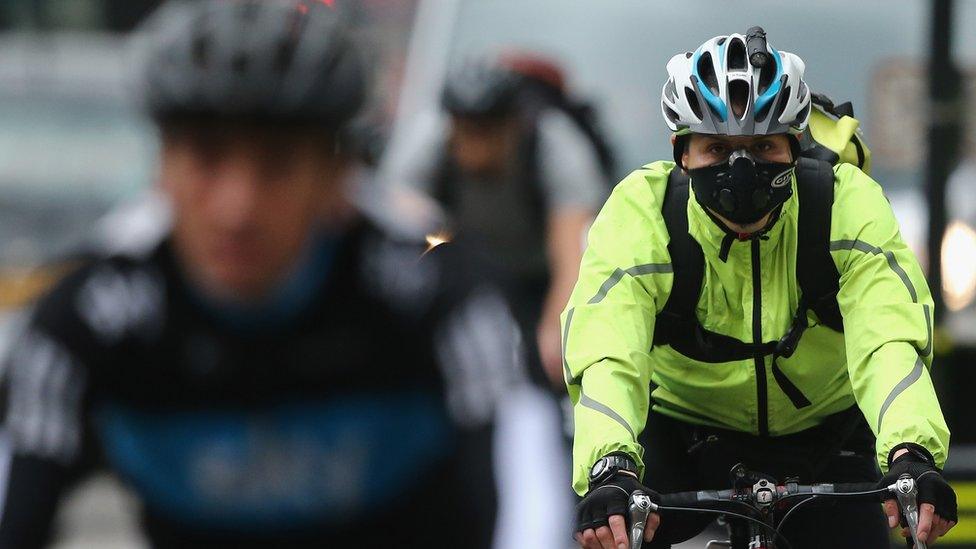
- Published6 March 2017
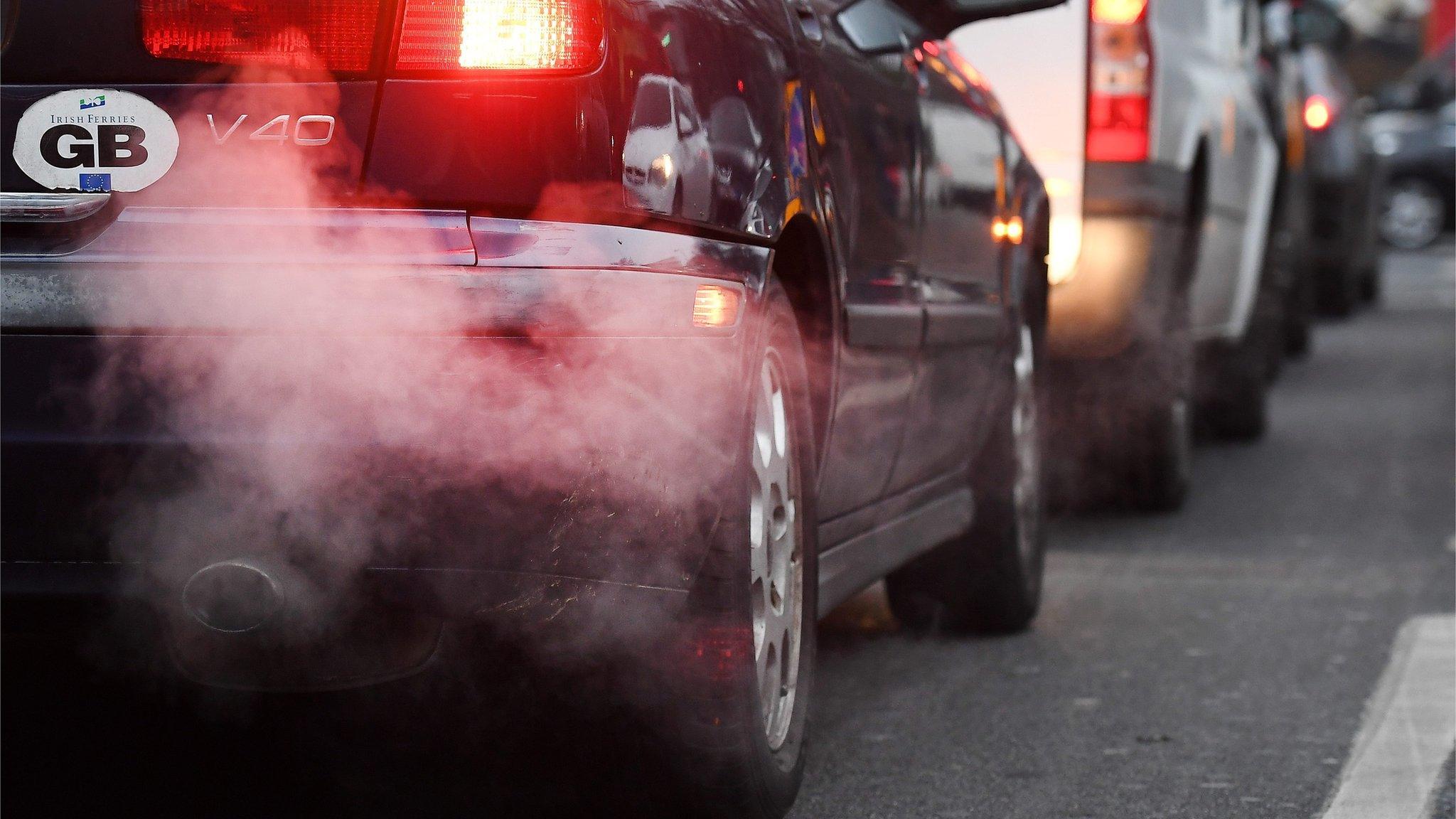
- Published4 May 2017
